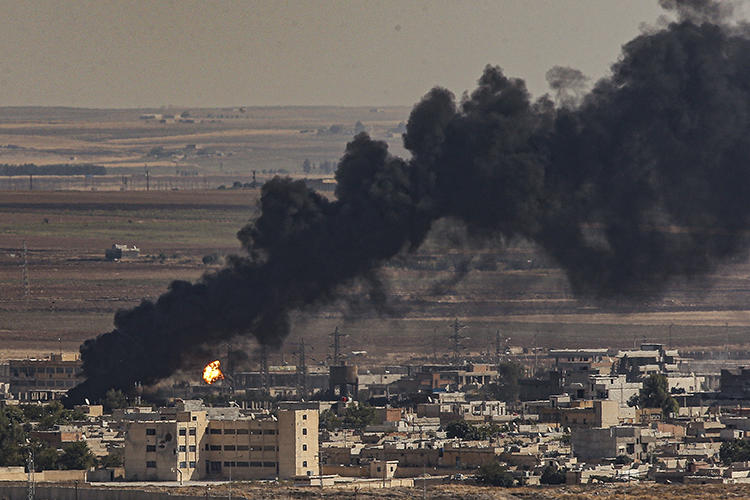Beirut, October 13, 2019 — The Committee to Protect Journalists today condemned the Turkish air strike on a civilian convoy that killed journalist Saad Ahmed and injured at least four other reporters.
At about 4:15 pm today, a Turkish airstrike hit a civilian convoy traveling between the northern Syrian towns of Qamishli and Ras al-Ain, killing Ahmed, a Syrian Kurdish reporter for the local news agency Hawar News (ANHA), according to ANHA Director Alan Roj and Editorial Director Delshad Judy, who spoke to CPJ via messaging app.
At least four other journalists from local news outlets were also injured in the attack, according to news reports and sources who spoke to CPJ. According to a report by the London-based Syrian Observatory for Human Rights, five other civilians were killed in the strike.
“We are deeply concerned by the apparent targeting of a civilian convoy today in northern Syria. Turkish forces must respect international standards and ensure that journalists and other civilians are not targeted; such attacks are expressly prohibited by international law and may constitute war crimes,” said Maria Salazar Ferro, CPJ’s emergencies director, in New York.
CPJ’s Emergencies Response Team, which is led by Salazar, is closely monitoring the situation in Northern Syria and is in communication with many journalists covering the conflict. Journalists can consult CPJ’s Safety Notes for War Reporting for safety information.
“Journalists entering Syria and newsrooms commissioning reporting out of northern Syria should understand the risks of this latest escalation and ensure they have taken all precautions to mitigate risk in an increasingly volatile environment,” Salazar noted. “These include risk assessment, appropriate training and safety equipment, and a clear contingency plan for emergencies.”
The attack took place near Ras al-Ain, a Syrian town on the Turkish border, which has seen intense fighting between Turkish and Syrian Kurdish forces since Turkish President Recep Tayyip Erdogan launched an offensive into Syria on October 9, according to news reports.
Roj and Judy told CPJ that Ahmed and his ANHA colleague Mohammad Ikinji were with a group of local and foreign journalists en route to cover a demonstration against Turkey’s offensive when their caravan was struck.
Shrapnel from the blast hit Ahmed near the head and hit Ikinji in the feet; both were transferred to the local Tall Tamr Hospital, where Ahmed died of his injuries, according to a report by ANHA.
Arsene Jakso, a reporter for the Furat News Agency, Dilsuz Deldar, a reporter for the North Press Agency, and Amal Younis, a reporter for the pro-Kurdistan Workers’ Party broadcaster Sterk TV, were also injured in the strike, according to news reports and a tweet by the North Press Agency.
Those reports also stated that three additional journalists were injured in the attack, but CPJ could not independently verify that information.
Masoud Hamd, a reporter working for French TV broadcaster France 2, who was in the convoy, told CPJ via messaging app that he believed no foreign journalists were injured in the attack. Heybar Othman, a reporter with U.S.-based Arabic satellite broadcaster Al Hurra, who covers the area and also spoke to CPJ via messaging app, agreed.
A report by France 2 TV said that the convoy was escorted by Syrian Democratic Forces, a coalition of militias led by security forces loyal to the Kurdistan Workers’ Party. The commander-in-chief of the Syrian Democratic Forces, Mazloum Abdi, wrote earlier today in Foreign Policy magazine that his forces may side with Syrian President Bashar al-Assad to fight against the Turkish incursion into Syria.
Assad’s government has been responsible for the deaths of numerous journalists by torture, missile strikes, and targeted assassinations, according to CPJ reporting. Turkey is the world’s worst jailer of journalists, according to CPJ’s 2018 prison census.
[Editor’s Note: This article has been updated in its fifth paragraph to link to more up-to-date safety information from CPJ.]
